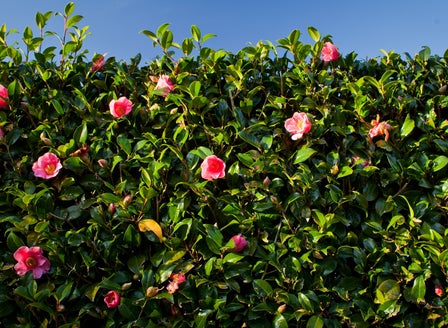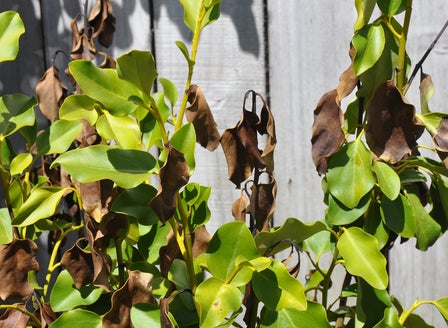A very hardy and adaptable NZ Native plant that will fit into a wide variety of situations in the garden. With its lush leathery bright lime/apple green leaves, Griselinia makes a great hedging plant and responds well to pruning. Ideal as a screen to create privacy or planted into containers, it is coastal hardy and can cope with salt spray and winds.
Planting Calendar
Griselinia can be planted throughout the year but does best when planted in spring and autumn, giving it time to establish its roots before the heat of summer.
Prepare
Position
Griselinia is tolerant of most positions and can grow in full sun to partial shade. It is able to cope with wind, salt spray and light frosts, making it a great coastal plant.
Plant
When planting into the ground, gently tap the plant out of its pot. Dig a hole twice the depth and width of the plants root ball. Mix Kings Compost into your existing soil at a 50/50 ratio, add Sheep Pellets and Kings 24 Plus fertiliser, then mix together well. Back fill the hole with this soil, so that when planted the top of the plant’s roots sit level with the surrounding ground. Firm the soil down gently and water in well with Aquaticus Organic Garden Booster. In heavier clay soils, where drainage is likely to be an issue, plant onto a raised mound and sprinkle Gypsum Clay Breaker into the bottom of the hole, this helps slowly condition the soil and help to break down the clay.
Care
Watering
Watering is essential especially in the first year of planting to allow the roots to get well established. Water slowly allowing the water to sink down into the roots, rather than allowing it to run off the top of the surface. Add Saturaid into the soil at planting as this will help channel the water deep down into the root zone. Consider setting up an automatic watering system – these can be simple and inexpensive.
Feeding
Liquid feed every month with Aquaticus Garden Booster, from spring through to the end of autumn, this encourages root growth and a healthy immune system. Monthly applications of Kings Sheep Pellets will help with soil conditioning and plant health.
Protecting
Add some Rootmate to the soil at planting as this helps fight against fungal root conditions. Scale insect can be an issue with Griselinia, spray with Bugtrol monthly at first sign of pests.
Mulching
Mulch around the base of the plants (make sure the mulch does not come into direct contact with the stem of the plant) with Living Earth More than Mulch. Mulching helps to reduce weeds as well as aiding the soil to retain moisture.
Pruning
Regular pruning is essential if you want to create a dense, well-structured hedge. Prune after each flush of new growth. Ensure that you use sharp tools to avoid brown jagged edges on the leaves.
General Care
When using sprays, chemicals or fertilisers always read the label and follow the instructions. Apply sprays in the evening to avoid harming beneficial insects.
Beginner Tip
Avoid heavy pruning in autumn, as this promotes soft new growth more susceptible to frost damage.
Expert Tip
Griselinia need to be kept moist during the hotter months so that they do not suffer from stress, this will make them susceptible to soil fungal conditions. Drooping foliage turning black is a sign of root damage from soil pathogens.
Top Varieties
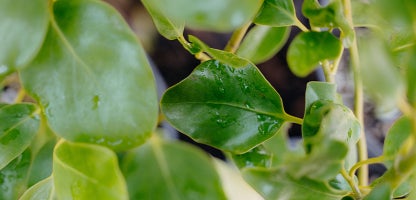
Griselinia Littoralis
The most common variety for hedging growing to a height of 4m x Width 2m.
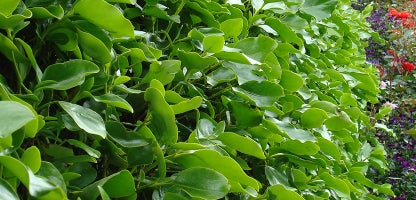
Griselinia whenuapai
This variety has rounder darker green leaves and tends to grow somewhat more upright.Growing to a height of 3m x Width 2.5m.
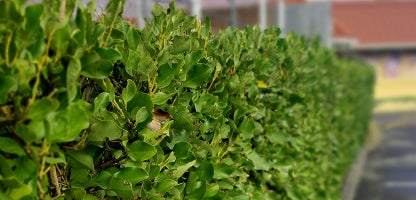
Griselinia lucida
Lucida has larger apple green leaves and is not as commonly used as a hedge. It is often grown as a specimen tree for privacy. Growing up to 5m and 3m wide.
Frequently Asked Questions
What is the best location for planting Griselinia?
Griselinia thrives in full sun to partial shade. It prefers a sheltered spot with well-draining soil and is excellent for coastal areas due to its salt tolerance.
How often should I water Griselinia?
Watering is essential especially in the first year of planting to allow the roots to get well established. Water slowly allowing the water to sink down into the roots, rather than allowing it to run off the top of the surface. Add Saturaid into the soil at planting as this will help channel the water deep down into the root zone. Consider setting up an automatic watering system – these can be simple and inexpensive.
When is the best time to plant Griselinia?
The best time to plant Griselinia is in autumn or spring when the soil is moist and temperatures are mild.
How do I prune Griselinia?
Regular pruning is essential if you want to create a dense, well-structured hedge. Prune after each flush of new growth. Ensure that you use sharp tools to avoid brown jagged edges on the leaves.
How tall does Griselinia grow?
Griselinia can grow up to 5 metres tall, but it can be maintained at a lower height with regular pruning.
